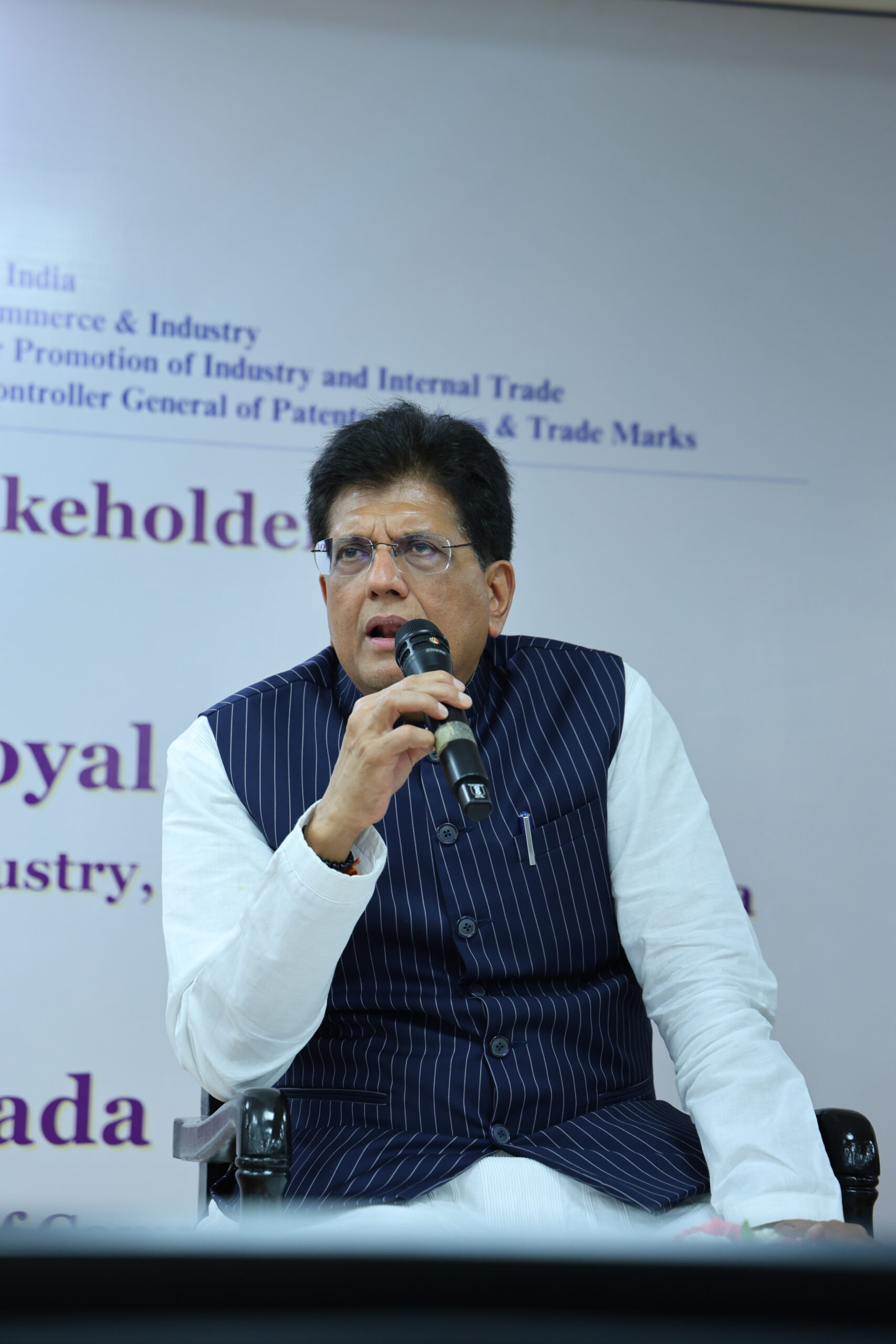Commerce and Industry Minister Piyush Goyal has signalled a sweeping reform of India’s intellectual property (IP) framework. The government aims to simplify laws, speed up processes, and create new avenues for commercial use of registered rights.
Goyal said the government is open to introducing new laws and making amendments where needed. He added that officials will study how trademarks can be better leveraged for revenue and economic growth.
The minister highlighted that India’s IP ecosystem has made significant progress in recent years. Patent grants have risen sharply. Trademark filings have also surged, making India the sixth-largest filer worldwide. Yet, Goyal acknowledged that trademark registration timelines remain long and need to be reduced.
The reforms come after the Jan Vishwas (Amendment of Provisions) Act, 2023 took effect on August 1, 2024. The law decriminalised several minor IP offences and replaced prison terms with monetary penalties. It also introduced a 10% automatic increase in fines every three years.
To boost efficiency, the government recently launched AI- and machine-learning-based tools for trademark searches. The new IP Saarthi chatbot offers guidance in local languages, making the process more accessible to entrepreneurs and small businesses.
Goyal stressed that technology will play a central role in modernising IP administration. Faster examinations, digital tools, and better enforcement mechanisms will help India attract innovation and investment.
He also pointed to the potential of monetising trademarks. While he did not give details, experts say this could involve licensing, brand valuation, and broader commercial use of registered marks.
The push to ease compliance is part of the government’s broader plan to cut outdated rules. According to Goyal, many provisions are redundant and create unnecessary burdens for businesses.
India’s reforms aim to balance protection of rights with ease of doing business. If successful, they could position the country as a global leader in IP administration and innovation-driven growth.

